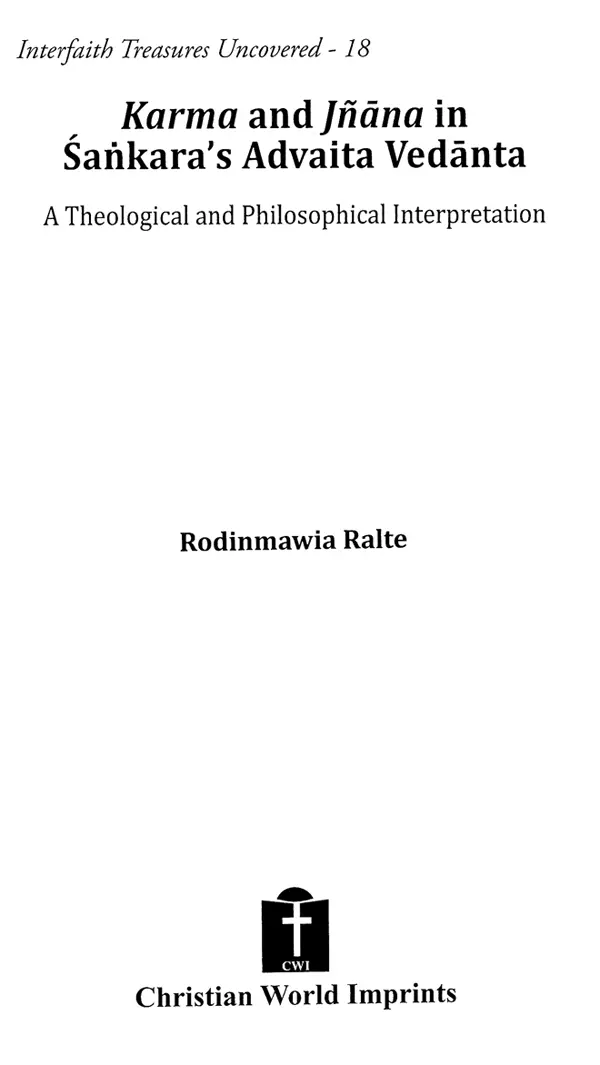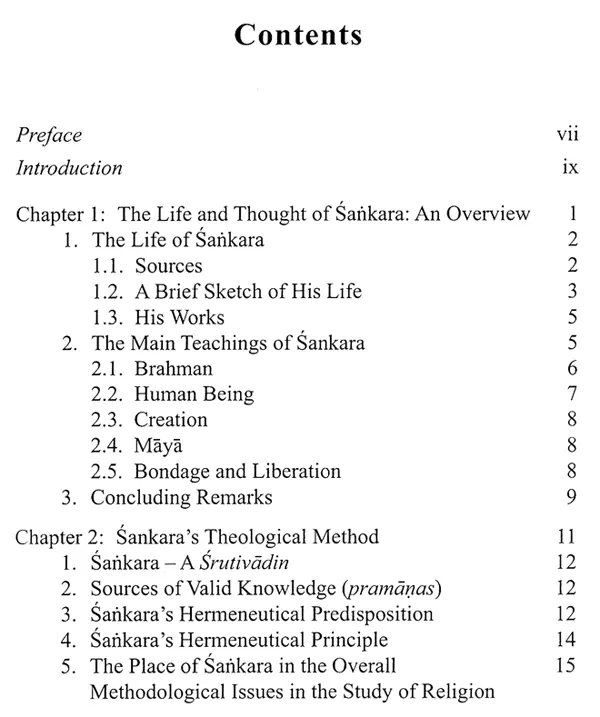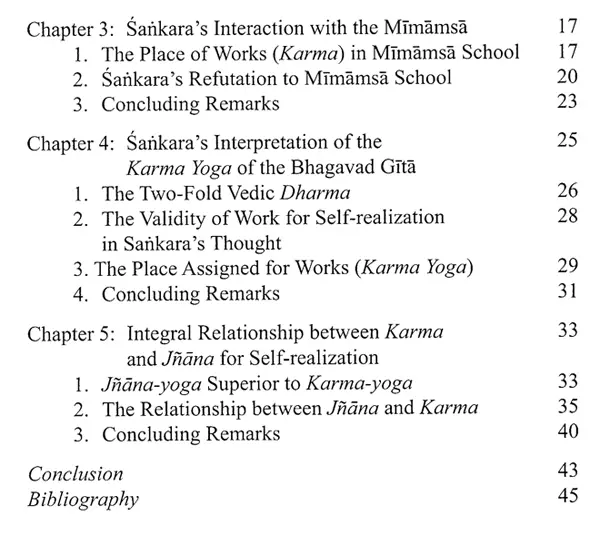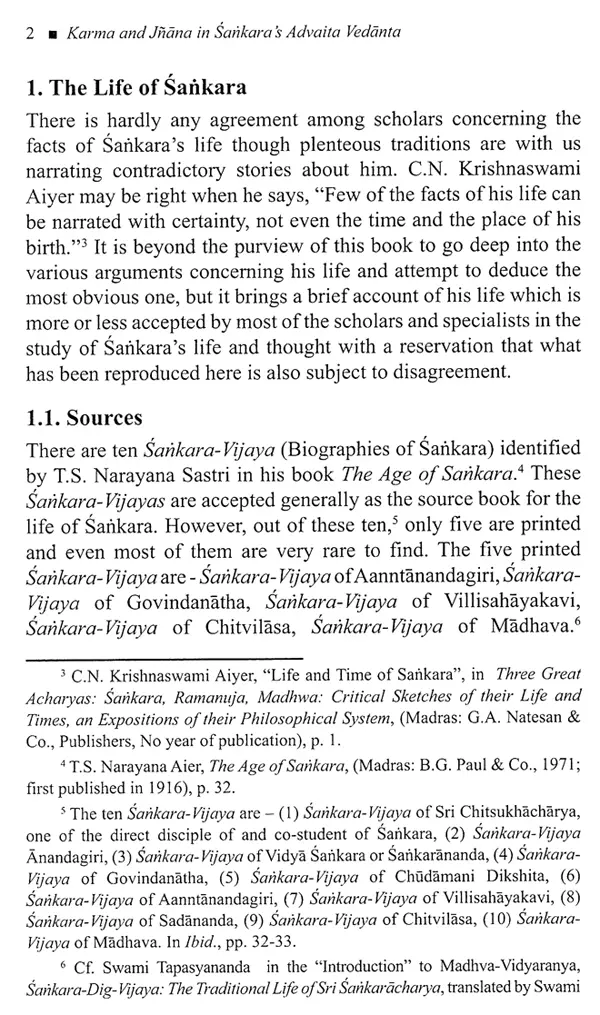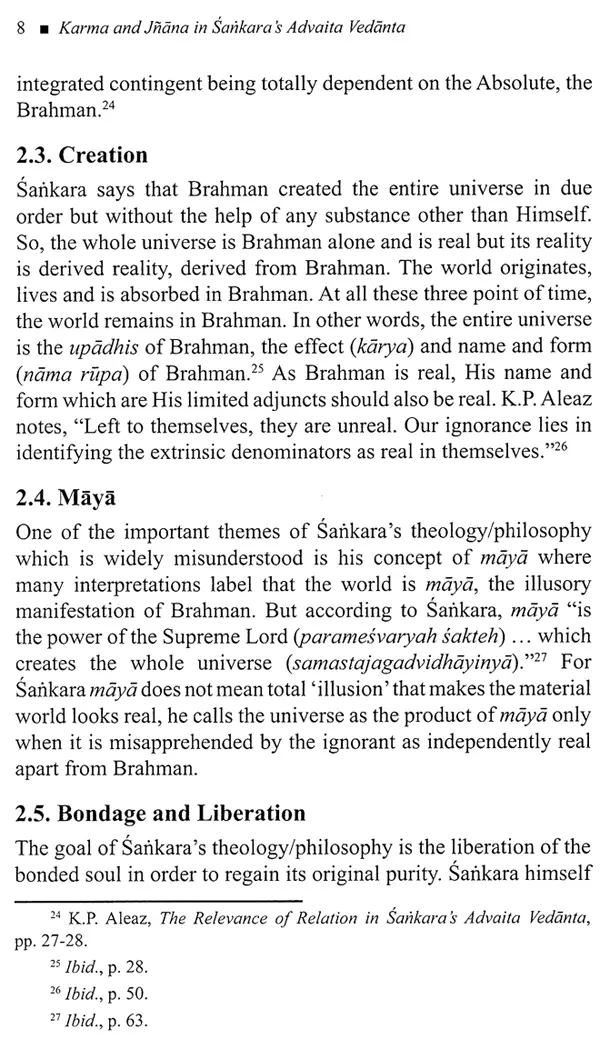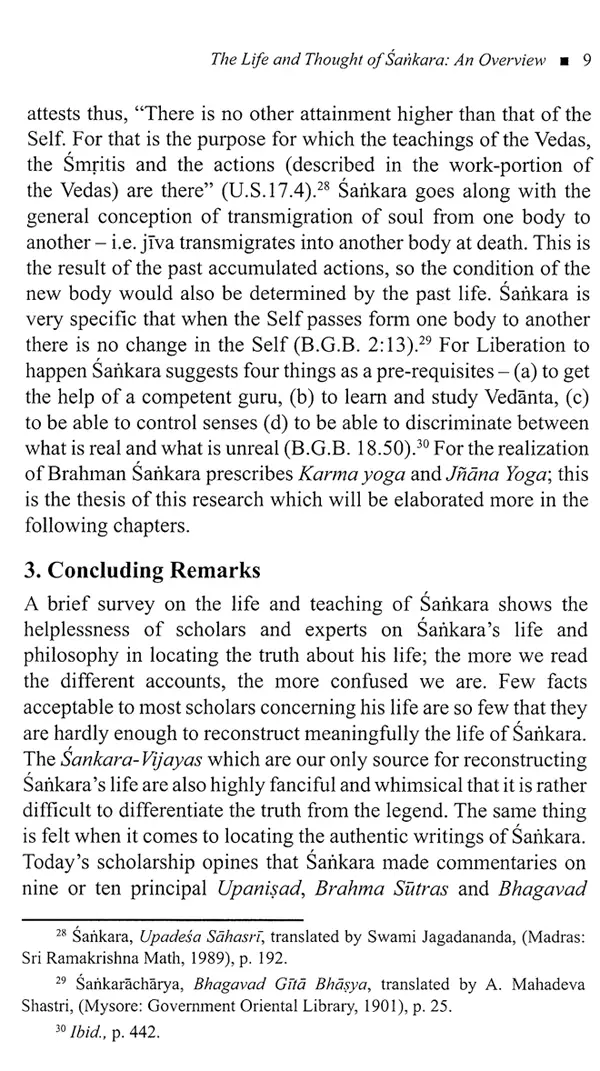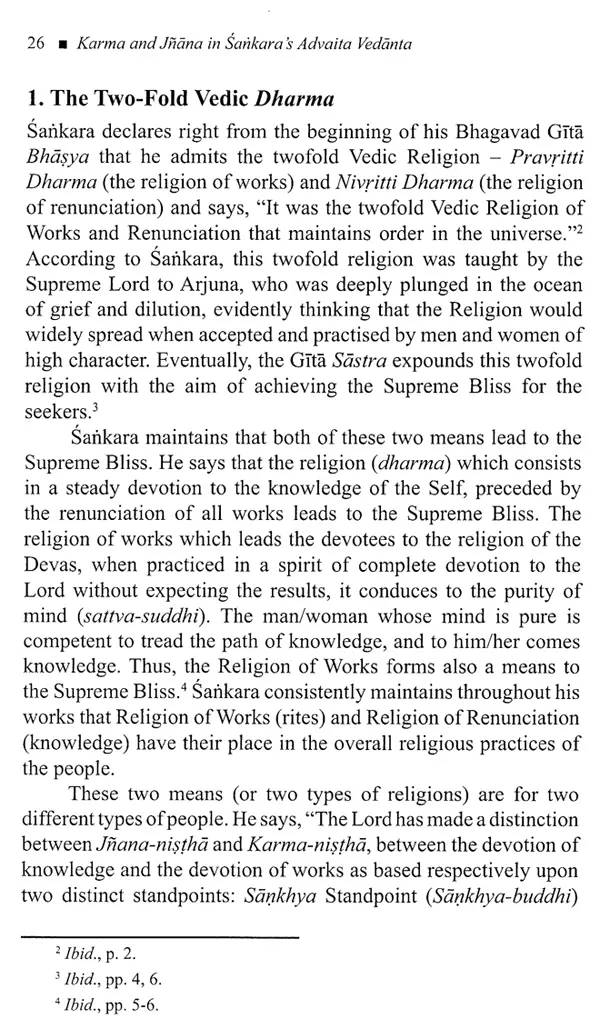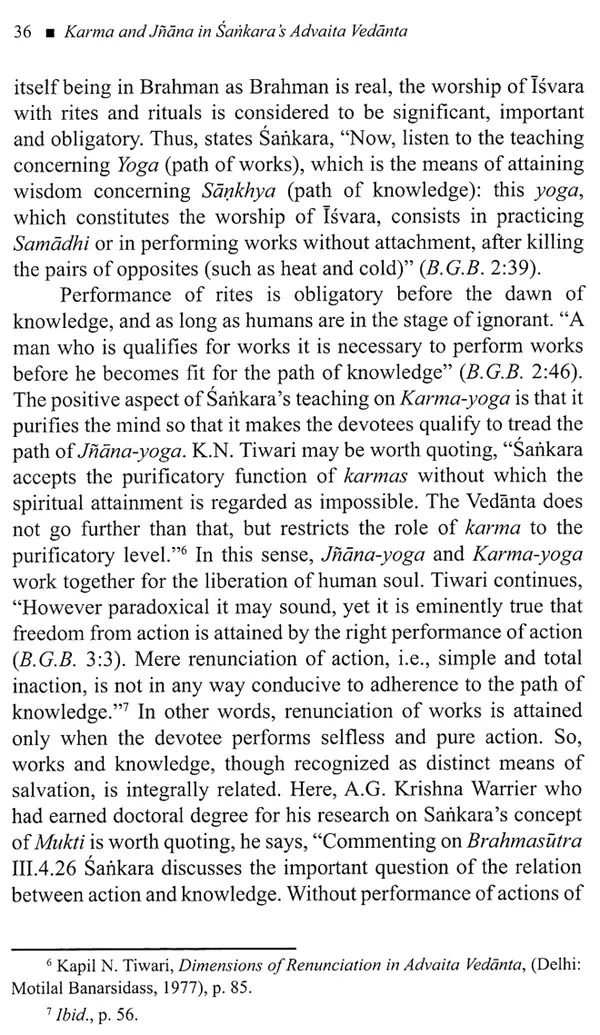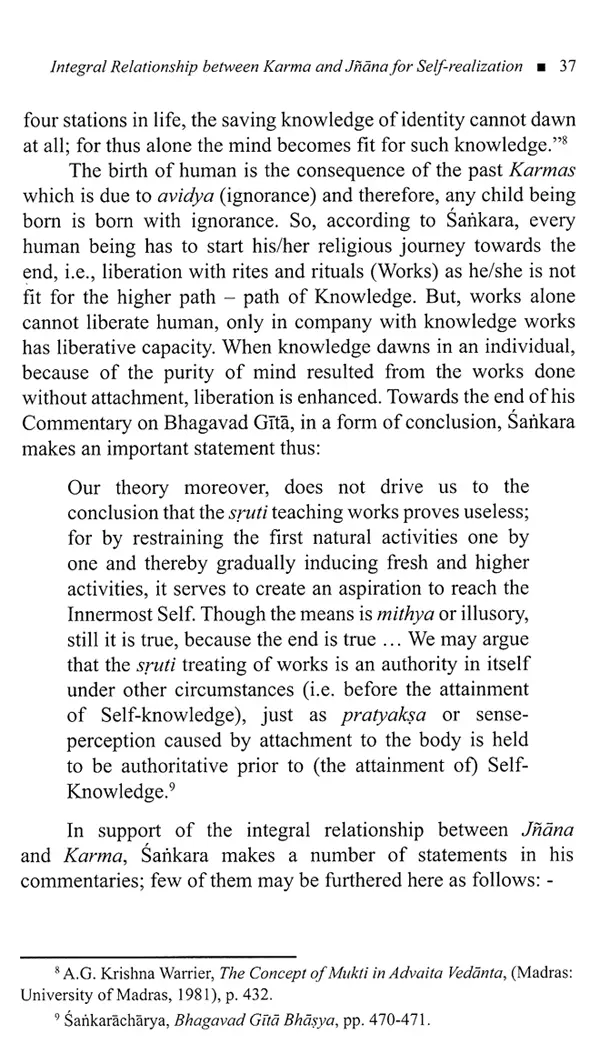
Karma And Jnana In Sanskara's Advaita Vedanta - A Theological And Philosophical Interpretation
Book Specification
| Item Code: | UBA185 |
| Author: | Rodinmawia Ralte |
| Publisher: | Christian World Imprints, Delhi |
| Language: | English |
| Edition: | 2019 |
| ISBN: | 9789351483472 |
| Pages: | 47 |
| Cover: | PAPERBACK |
| Other Details | 8.50 X 5.50 inch |
| Weight | 100 gm |
Book Description
It is generally held that for Sarikara, Jñana marga is the only way for Self- realization and that Karma marga has no salvific importance. It is this notion that this book proves it wrong! Sankara, while considering Jfiana as the only means for salvation, never negates the importance and the obligatoriness of Karma. He rather recognizes twofold Vedic religion - religion of work and religion of renunciation of work (knowledge) as ordained by God. Though these two are distinct means which cannot be conjoined, meant for two distinct classes of the people- the path of works (rites) for the ignorant and the path of knowledge for the knowledgeable (the sannyasins), they are integrally related in the sense that works help people to climb the ladder of spirituality in order to attain purity of mind. Only those whose hearts are pure are eligible to tread the path of knowledge. So, these two means are complementing one another - Karma yoga leads to jñana yoga and jñana in turns leads to Self-realization. Thus, there is essential relationship between Karma Yoga and Jñana Yoga for Self-realization in Sankara Advaita Vedanta.
The author Rev. Dr. Rodinmawia Ralte was formerly the Associate Professor of Religion at Bishop College, Kolkata and also the Associate Professor of Religion and Philosophy at the North India Institute of Post Graduate Theological Studies, Kolkata, India. He is presently serving as a Pastor under the Baptist Church of Mizoram. He authored three books in English and another 4 books in Mizo and published numerous articles in the leading theological Journals in India. His English books include-Hindus and Hindutva (2014), The Unveiled Christ of the Indian Gurus (2017), and The Interface of Science and Religion (2017); the latter two being CWI publications.
This booklet is the product of my sincere research into the Advaita Vedanta of Sankara and I am happy that it comes out in a book form for the public readers especially for those who are interested in Sankara's theology/philosophy. Though the book is small, I feel that the content is big, in the sense that I have put my bold argument that for Sankara, karma yoga is important or rather indispensable for self-realization which many scholars and students of Sankara may want to oppose it strongly. That is why this booklet is interesting and important. I wish that this booklet will throw some lights into the study of Sankara and provoke scholars in this area to study more and probe deeper into the matter to bring out more hidden things in Sankara's Advaita Vedanta.
I thank my good friend, Shri Sudhanshu and the Christian World Imprints for their interest to publish this material. May God, the Ultimate Reality, bless this book for all the readers.
Of all Indian thinkers there may be no one who is more misunderstood than Sankara, although he has shown no ambiguity throughout his writings. Surendranath Bhattacharya's comment is well taken: "He combined profundity of thought with clarity of expression - a combination rare in philosophical writings." Sankara, the medieval spiritual and intellectual giant, uses simple language but writes profound theological and philosophical piece but is still misinterpreted and misunderstood by many scholars. Professor R. De Smet identifies three basic reasons as to why Sankara is misunderstood and misrepresented by scholars, such as, unsystematic presentation of his works (most of his works are commentary on Scriptures), inadequate vocabulary (he uses Samkhya language and does not create many new terms to express his thought) and influence of spurious works (so many works that bear the name of Sankara which influence some of his later followers and interpreters, are not genuine Sankara's writings)? This research work is a daring attempt to rectify one of such erroneous interpretations of Sankara.
